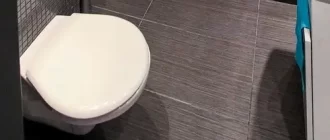How to detect and get rid of an allergen? An allergen is a factor that, once in our body, causes an overreaction of the immune system, causing allergy symptoms. The number of recognized allergens continues to grow. We encounter them in our daily lives, including our homes. However, there are ways to greatly reduce their numbers and reduce fast allergy symptoms.
How does an allergen work?
An allergen is any factor or substance that, once it enters our body, causes an abnormal overreaction of the immune system, causing allergy symptoms. It takes at least two contacts with an allergen to cause allergy symptoms . The first contact the body has with a specific allergy predisposition to a sensitizing factor causes the immune system to “remember” that allergen. By storing the information about the allergen on the next contact, the body reacts very quickly by releasing specific IgE antibodies that stimulate mast cells and release histamine and other mediators responsible for the clinical symptoms of allergies.such as runny nose, cough, redness and itching of the conjunctiva or abdominal pain and bloating due to food allergens .
What allergens can be found at home?
We can deal with most of the known allergens in our apartments. The apartment is never tightly closed and there can also be allergens from outside. Therefore, some of the most common allergens in the home include:
- House dust mites – these are microscopic organisms from the spider group, which live literally everywhere and feed on dust components – food residues, detached human epidermis. The most common mite species in our homes is Dermatophagoides pteronyssinus . It is found wherever dust collects – in sleeping mattresses, upholstered furniture or bedding,
- animal hair – the real allergen of animals is most often their saliva and epidermis, which is transmitted through hair that gets into the air. We are usually allergic to cats, dogs and guinea pigs,
- Mold spores are allergens that are most commonly found in warm and humid places, i.e., bathrooms and kitchens – especially on food scraps,
- cockroaches – they are, contrary to appearances, not uncommon inhabitants of our homes. Like mold, cockroaches occupy places where old food remains.
- plant pollen – they appear in the apartment in the spring and summer, when plants start to dust and we open the windows.
How to deal with home allergens – dust
The most effective, but not the easiest method of treating allergies is to avoid contact with the allergen . Avoiding contact with the allergen greatly reduces or eliminates the symptoms of an allergic reaction.
Ways to control home dust mites:
- Frequent washing of bedding and soft materials at 140 F (about every 7-12 days). It is also effective to freeze the bedding and air it outdoors in the winter;
- Using special mattress covers that are easily removable and washable;
- replacing carpets and rugs with parquet, laminate or linoleum. If carpets are necessary, use short-pile carpets or commercially available antiallergic carpets with pile containing antibacterial and antifungal substances;
- frequent cleaning of surfaces with a damp cloth. This is especially important in the case of radiators, the heat of which promotes the deposition of dust and the development of mites;
- Using vacuum cleaners with special filters;
- reducing the number of blinds and curtains in which dust accumulates;
- changing the upholstery material to leather;
- removing wallpaper and applying paint;
- avoiding an excessive amount of plastic decorations, on which a lot of dust collects throughout the apartment.

How to deal with home allergens – plant pollen
Plant pollen enters apartments through open windows, usually during periods of highest concentration in the air:
- During periods of high pollen from plants to which we are allergic, close windows during the day and keep window frames and window sills clean;
- After spending the day outside, take a shower and wash your head thoroughly;
- Wear sunglasses when walking to keep the dust out of your eyes.
How to deal with home allergens – mold
Ways to reduce exposure to mold:
- Frequent bath and shower washing, preferably using products that contain ammonia, and taking care to keep wet areas in the kitchen clean, especially around the sink or dishwasher
- Washing bath mats frequently;
- washing floors with water and detergent and, after washing, thoroughly drying the washed surfaces;
- Thoroughly wash hidden nooks, crannies, crevices, hidden and dark places;
- throw away unused and spoiled food (also important in case of allergies to cockroach antigens) and store food in closed containers;
- washing dishes regularly and throwing away trash frequently,
- Using special dehumidifiers to avoid excessive humidity and, at the same time, limiting the use of humidifiers;
- cleaning and maintaining heating and ventilation systems;
- Reducing or removing pots with soil whose moisture is conducive to the development of mold spores;
- Mold spores are very common in basements – make sure the basement is not too wet and remove items on which mold has accumulated;
- Keep in mind that mold allergies can be linked to penicillin allergies – be especially careful of symptoms when taking these antibiotics, especially the first time.
How to deal with pet allergens
If you are allergic to animal allergens :
- Because of the relatively frequent severe symptoms of animal allergies, it may be necessary to remove the pet from the home. This is also important when the doctor prescribes a specific immunotherapy treatment (desensitization) – contact with the allergen must be completely interrupted during this treatment;
- Frequent washing of your pet, as well as thorough hand washing after playing with it, may be helpful;
- Frequent washing of your pet’s bedding;
- keeping your pet out of the house if possible, avoiding them, especially in the bedroom;
- Changing and washing clothes frequently, preferably after each contact with the pet;
- regular, thorough vacuuming of rooms, especially carpets where pet hair accumulates.
- In addition, care should be taken to ensure that no family member smokes cigarettes, which is especially important in the case of inhalation allergies and bronchial asthma . You should also remember that it is not always enough to take care of reducing allergens in your own apartment, because contact with allergens is inevitable everywhere – including at school or at work. A very important element in fighting allergies is to educate other family members and make them aware of allergens that they can “bring with them” from other places.
Useful links:







